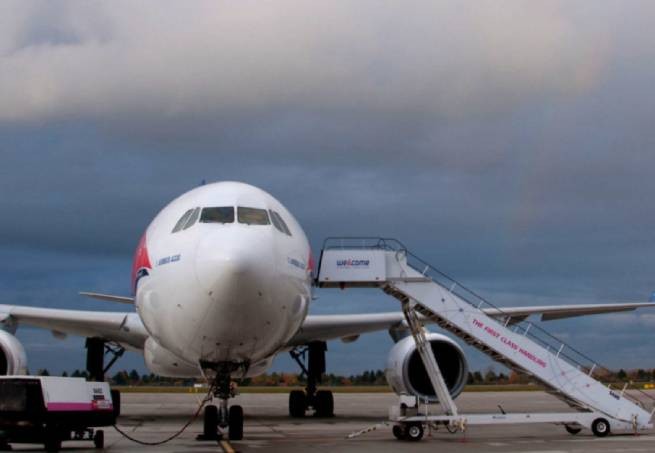Countries, one after another, are relieved to cancel the precautionary measures that have bothered everyone to prevent the spread of coronavirus. Most of them return to their former, “pre-Covid” life.
Denmark has become a leader in this process – it was the first in the European Union to remove all pandemic restrictions, thanks to high vaccination coverage of the population and less aggression of the Omicron strain:
nightclubs were opened with the removal of restrictions on the number of customers; minimal restrictions on entry into the country remain – only for unvaccinated citizens arriving from outside the Schengen area.
In the US, Dr. Anthony Fauci, a leading infectious disease expert, announced a few days ago the need for a return to normal life, despite the risks of COVID-19 still existing in the country. President Joe Biden’s chief medical adviser and member of the Coronavirus Task Force said the authorities’ difficult choice is to balance the need to protect against infection with overwhelming population fatigue from the pandemic, which is in its third year. However, the number of new cases of omicron is declining, and several US states – New Jersey, New York, California, Connecticut, Delaware and Oregon – are phasing out masks in schools and public places in the coming weeks. Yet roughly 2,200 Americans die from Covid-19 every day, most of them unvaccinated.
Canada has announced the elimination of the mandatory PCR test for entry into the country, and Quebec is phasing out the vaccination certificate. Recommendations to avoid traveling abroad have already been canceled, but for more than 2 weeks there has been an ongoing debate in the country about health measures. From February 28, vaccinated passengers will no longer need to present a negative PCR test to enter the country.
Australia has lifted virtually all restrictions in major cities amid a steady decline in the number of people hospitalized with covid-19. On Friday, nightlife resumed in Sydney and Melbourne. The number of new patients with covid has fallen to 2,600, about half from a peak three weeks ago of about 5,400 daily. The relaxation of social distancing rules comes ahead of the country’s international borders reopening on Monday, after a nearly 2-year hiatus.
New South Wales and Victoria, where more than half of the 25 million people live, have been hardest hit by the Omicron option. Last month, several tough restrictions were reinstated there. Closed establishments in Sydney and other cities in New South Wales will now allow any number of visitors through and will only require a vaccination certificate in high-risk areas. Masks will become mandatory in public transport, hospitals and airports only from 25 February. Mandatory hotel quarantine for unvaccinated foreign travelers will be limited to seven days instead of two weeks in both states.
Israel canceled the “green pass” for entering public places three days ago, thereby easing restrictions. True, this rule was already relaxed on February 4, when the pass was only required to enter nightclubs and event centers.
Portugal announced the lifting of all restrictions except for the wearing of masks in supermarkets and on transport, amid a decrease in the number of cases of omicron. Teleworking is no longer recommended, and you don’t need to show your digital vaccination pass when you enter hotels. After contact with an infected person, you will not need to isolate yourself. But outsiders will not be allowed to enter restaurants, hotels or cultural institutions (it’s a little unclear, however, what “outsiders” means).
The Netherlands, given the significant decline in cases and hospitalizations, plans to lift restrictions from 25 February. Bars, restaurants and nightclubs will continue to operate, and masks will no longer be mandatory in most places. But for a visit, you will need to present a certificate of a coronavirus or vaccination, an alternative is a negative test for covid.
France is abolishing masks in enclosed spaces that require a vaccination pass to enter. Again allowed to visit discos, bars and concert halls. Masks are mandatory on public transport and where a vaccination pass is not required. The new rules come into effect on February 28 and are in line with the recommendations of the Health Council. From the middle of next month, taking into account the epidemiological situation, further easing of measures regarding masks and certificates is possible.
Spain has abolished the mandatory mask outdoors since February 10. They remain mandatory in large crowds (concerts, for example) and on public transport. Almost all regions have canceled the presentation of a Covid certificate at the entrance to nightclubs and bars. From March 4, the government is expected to lift restrictions on the holding of sports events and the occupancy of stadiums.
In Italy, since last week, the mandatory use of masks on the street has also been canceled, with the exception of crowded places. It will be used indoors until March 31st. Discos and clubs have resumed work, but only those who have received at least 2 doses of the vaccine or have been ill can get there.
Austria lifts most pandemic restrictions from March 5th. The use of masks will only become mandatory in workplaces, supermarkets, doctors’ offices, hospitals and nursing homes. Catering establishments will be open to everyone without restrictions, in accordance with their work schedule.
Switzerland lifted almost all restrictions last Thursday. Only the obligation to wear a mask in public transport and medical infrastructure will remain, as well as a five-day quarantine for those who have tested positive for coronavirus.
Access to shops, restaurants and cultural venues will be free. More than 90% of the Swiss population of 8.6 million are protected from the virus, either because they have recovered from COVID-19 or because they have been vaccinated. There are tens of thousands of new cases every day, but the health system has held its own and ICU coverage has declined.
Germany is planning a gradual easing of restrictions by March 20, which has already been called “Freedom Day”. On March 4, in the first phase, private gatherings will again be allowed without limiting the number of participants. At the same stage, restrictions on access to retail outlets are lifted, which now only vaccinated and treated persons can enter. However, the use of a mask will remain mandatory, with the FFP-2 recommendation.
From March 4, vaccinated and sick people, as well as those who present a negative diagnostic test on the same day, will be able to visit catering establishments. But only those who have been vaccinated with three doses or have been ill with a negative test will be allowed into the clubs. From March 20, only the mandatory use of masks in all enclosed spaces and on transport, as well as social distancing, will remain.
Belgium lifted restrictions on opening hours for shops, bars and restaurants yesterday. Clubs will reopen and all outdoor or indoor events will be allowed. Faces from countries EU and the Schengen area or other countries with a valid vaccination or disease certificate will be able to enter the country without any additional conditions, just need to fill out an arrival form, informs newsbreak.gr.






More Stories
Shocking report from Japanese scientists: “Cancer deaths increase sharply after mass Covid vaccination”
Study: Scientists have discovered why children are more susceptible to coronavirus
22 arrests and confiscations took place in Italy and other EU countries in the case of "covid" EU funds (video)